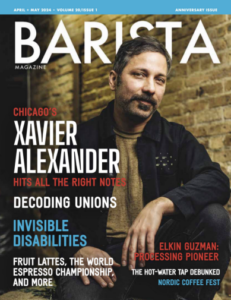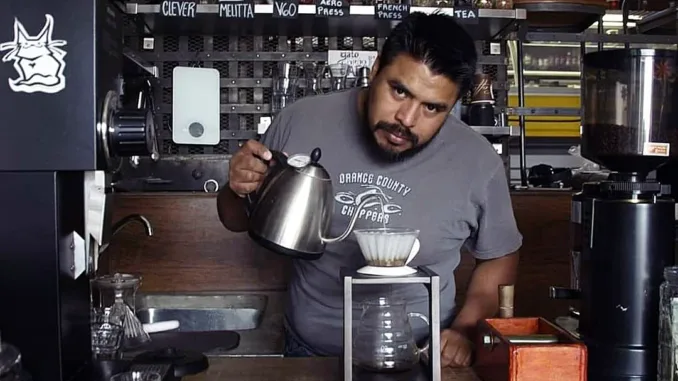
We talk with Gerson Otsoy about his café concept that became one of Antigua’s most groundbreaking specialty shops.
BY JORDAN BUCHANAN
SPECIAL TO BARISTA MAGAZINE
Featured photo courtesy of Fat Cat Coffeehouse
Wandering around in cities at home and the rest of the world, we coffee enthusiasts delight at the beauty and nuances of the different coffee shops we come across. We take great joy in sitting in a café with a pourover of the barista’s recommended bean. But rarely do we learn more about the coffee shop and why it exists.
Antigua, Guatemala, is a budding tourist town that combines colonial architecture with contemporary gastronomy and specialty-coffee culture. Today we’ll share the story of Fat Cat Coffeehouse and its co-founder Gerson Otsoy, a pioneer of specialty café culture in the city and country.
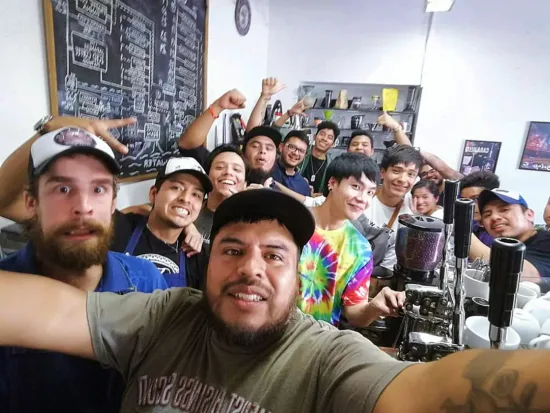
Gerson’s Journey Into Coffee
Gerson was born in a coffee-producing region in Guatemala; his mother was a coffee picker. Wanting to go into a different trade, he became a car mechanic. But he got called back to coffee in 2005 with a job at the Guatemalan commercial coffee chain &Café. He fell in love with latte art, the different drinks, and the customer interactions. Over the next four years he became a general supervisor of 22 stores. Despite trying to leave the coffee industry, he ended up working as an espresso machine mechanic by chance at Filedelfia Farm in Antigua. Over the next year, Gerson learned more and more about coffee, this time from the farm perspective.
Trial and Error
In 2010, Gerson created the first iteration of Fat Cat Coffeehouse. However, he started with minimal funds, a few gathered coffee items, and in a poorly located store. Inside a restaurant in the small town of San Juan Comalapa in Chimaltenango, people were not interested in his specialty madness. He moved the shop to Antigua, where it was hidden at the back of a garage. This project also did not turn out as he planned. Again, he left the coffee project behind to go to Spain with his brother Tito. But after a few years, he missed the coffee trade deeply and returned to Guatemala in 2013.
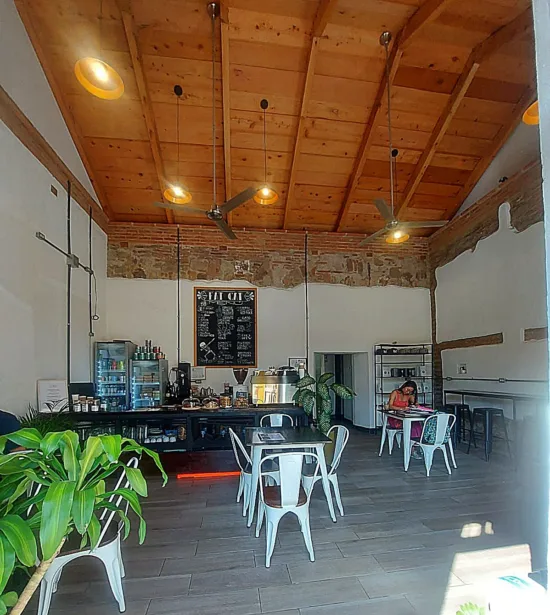
Flipping a coin to make a life-changing decision is probably not a recommended method. But upon Gerson’s return to Guatemala, the brothers did just that. Tito wanted to open a restaurant business and Gerson wanted to open a coffee shop. With the money they had saved from working abroad, they could only afford to do one. So, they flipped a coin. The result?
Running a Specialty Coffee Shop
Since 2014, Gerson and Tito have been pulling espresso and inspiring the rise of specialty café culture in Guatemala from Fat Cat Coffeehouse in Antigua. Who knows when, how, and with whose work the specialty café culture in Guatemala would have grown if the coin had landed on the other side. Thankfully for us, we can reflect on this good fortune while we sit in Fat Cat caressing a flat white. Almost as ingrained in the local culture as the church and convent ruins, Fat Cat Coffeehouse is a monument of the specialty café culture of Guatemala.
The coffeehouse continues to take risks and supply incredible experiences in the specialty scene in Guatemala. It is involved in social development projects to support rural education and work for those in coffee-producing regions. Gerson and Tito are two prominent figures in the local coffee culture, and their knowledge and connections enable them to provide the best Guatemalan coffee.
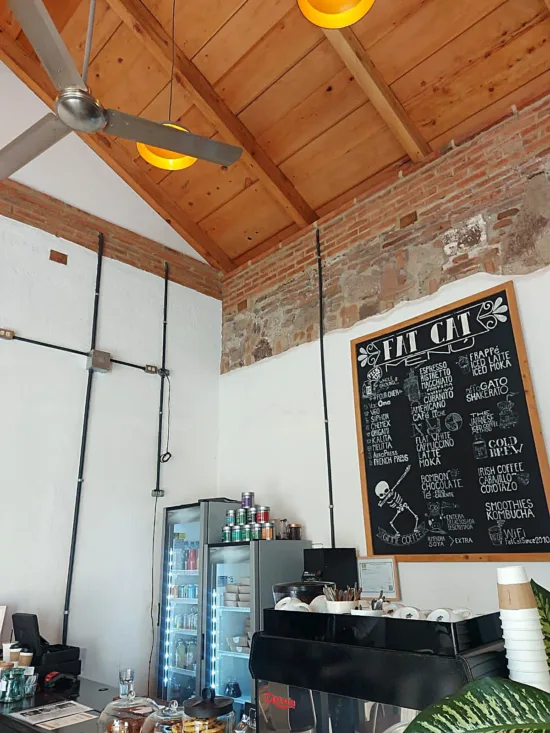
Taking Risks, Seeing Results
Moving from washed coffees to processed coffees in Guatemala is a risk because of the historic success of, and continued demand for, washed coffees. But Gerson is no stranger to stepping into the discomfort of potential failure. The brothers work closely with farmers to support their learning of processing methods and give consistent feedback.
As a result, Fat Cat has some of the best novel-processed coffee in Guatemala. Gerson wants to constantly learn, something that has inspired him from the beginning. He is looking for the next level of specialty coffee, beyond merely points-based quality. He wants unique, experimental coffees you won’t find elsewhere. And he wants the coffee-consuming experience to be a comprehensive, memorable moment.
When talking about what specialty coffee means to him, Gerson says that “the beauty of Guatemala being a producer country is that it gives the opportunity to go to farms and learn how they live and operate. For me, that is specialty coffee—knowing the story of the coffee, the trajectory of it point by point. When you find strengths and weaknesses in the served cup, you have all these understandings to be able to express to the customer how to drink it.“
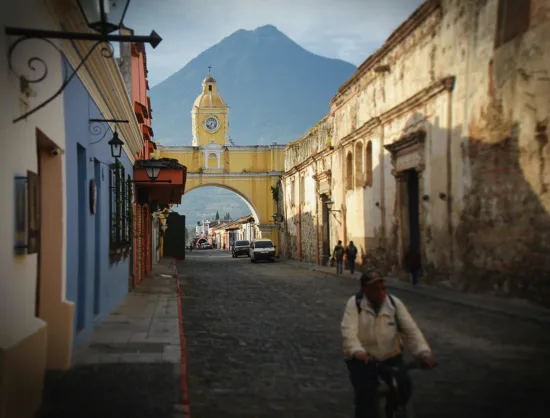
Perseverance and Good Luck
Fat Cat is a must visit on a trip to Antigua, where you can imbibe the history of this budding specialty-coffee culture. This is an origin story that almost never was; there were many times Gerson could have dropped the coffee concept. But passion, resilience, and good luck led him to becoming a pioneer in the specialty café culture of Guatemala. And this story resonates across that culture. We owe our ability to wake up each morning with specialty coffee to these crucial coffee workers: specialty coffee shop owners. Without them, there would be nobody roasting and selling the specialty coffees we crave.
ABOUT THE AUTHOR
Jordan Buchanan (he/they) is completing their Ph.D. in Latin American history at UC San Diego. Their research focuses on the growth of specialty-café cultures in producer nations in Latin America. Jordan grew up in Scotland and currently lives between there and Mexico when not doing doctoral work in San Diego. After purchasing their first AeroPress, Jordan has been an avid specialty-coffee enthusiast, which has added a new perspective to their lust for travel and exploration.
Subscribe and More!
Out now: It’s the April + May 2024 issue of Barista Magazine! Read it for free with our digital edition. And for more than three years’ worth of issues, visit our digital edition archives here.
You can order a hard copy of the magazine through our online store here, or start a subscription for one year or two.

